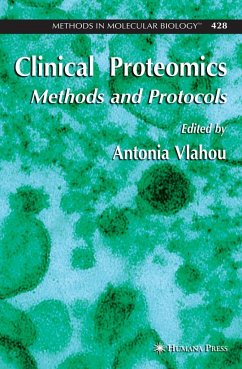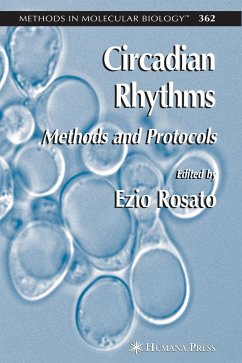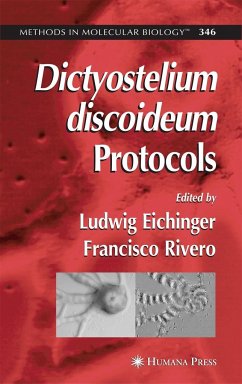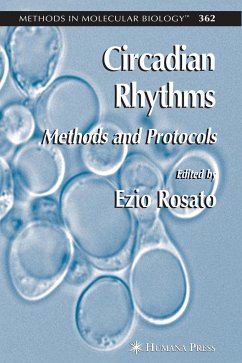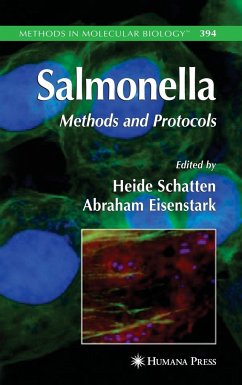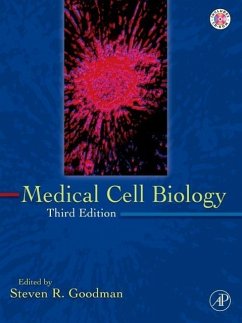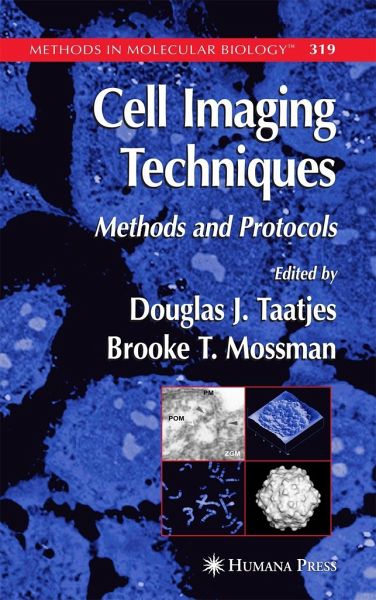
Cell Imaging Techniques

PAYBACK Punkte
55 °P sammeln!
A diverse collection of state-of-the-art methods for the microscopic imaging of cells and molecules. The authors cover a wide spectrum of complimentary techniques, including such methods as fluorescence microscopy, electron microscopy, atomic force microscopy, and laser scanning cytometry. Additional readily reproducible protocols on confocal scanning laser microscopy, quantitative computer-assisted image analysis, laser-capture microdissection, microarray image scanning, near-field scanning optical microscopy, and reflection contrast microscopy round out this eclectic collection of cutting-ed...
A diverse collection of state-of-the-art methods for the microscopic imaging of cells and molecules. The authors cover a wide spectrum of complimentary techniques, including such methods as fluorescence microscopy, electron microscopy, atomic force microscopy, and laser scanning cytometry. Additional readily reproducible protocols on confocal scanning laser microscopy, quantitative computer-assisted image analysis, laser-capture microdissection, microarray image scanning, near-field scanning optical microscopy, and reflection contrast microscopy round out this eclectic collection of cutting-edge imaging techniques now available. The authors also discuss preparative methods for particles and cells by transmission electron microscopy. Cell imaging methodologies have now become essential research tools for a variety of disciplines that traditionally had not relied on them. In Cell Imaging Techniques: Methods and Protocols, distinguished international researchers describe in detail their state-of-the-art methods for the microscopic imaging of cells and molecules. The authors cover a wide spectrum of complementary techniques, including such methods as fluorescence microscopy, electron microscopy, atomic force microscopy, and laser scanning cytometry. Additional protocols on confocal scanning laser microscopy, quantitative computer-assisted image analysis, laser-capture microdissection, microarray image scanning, near-field scanning optical microscopy, and reflection contrast microscopy round out this eclectic collection of cutting-edge imaging techniques now available. The authors also discuss preparative methods for particles and cells by transmission electron microscopy. The protocols follow the successful Methods in Molecular Biology series format, each offering step-by-step laboratory instructions, an introduction outlining the principles behind the technique, lists of the necessary equipment and reagents, and tips on troubleshooting and avoiding known pitfalls.
Timely and highly practical, Cell Imaging Techniques: Methods and Protocols provides researchers and clinicians with a richly useful guide to selecting and performing the best imaging method from a bewildering variety of microscopy-based techniques.
Timely and highly practical, Cell Imaging Techniques: Methods and Protocols provides researchers and clinicians with a richly useful guide to selecting and performing the best imaging method from a bewildering variety of microscopy-based techniques.



